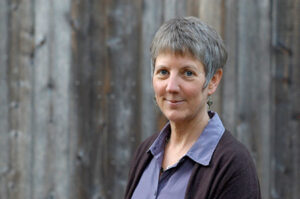Professors Design More Effective Math Remediation Course
| By Michelle Maitre | Edsource, Oakland, CA
Boosting graduation rates of community college students who need remedial coursework has been a long-standing challenge, but a team of community college professors are gaining followers to their efforts to re-envision the basic coursework and help students get through faster.
As many as 85 percent of incoming community college freshmen need remedial courses in math, and about 70 percent need remedial courses in English, according to a 2011 brief from the Legislative Analyst’s Office.
Black and Latino students are especially affected. Those students are far more likely to be placed at the lowest levels of remediation, according to a 2010 EdSource report.
Research shows that most students who begin in remedial courses will never persist to graduation.
The California Acceleration Project aims to reverse those dismal success rates. Launched in 2010 by an English professor and a math professor from two community college districts, the project works with instructors to revise and shorten the traditional remedial sequence, helping increase the number of students who pass credit-bearing math and English within their first year of starting college.

Remedial education “is a place where we lose a huge number of students,” said Chabot College English professor Katie Hern, co-founder the California Acceleration Project. “The vast majority don’t complete college-level English and math. They take remedial courses and then they disappear.”
Remedial courses, also called developmental education, don’t count for college or transferrable credit and are intended to provide basic or refresher skills to prepare students for credit-bearing courses.
Students are placed into the classes based on their scores on placement tests. The lowest-scoring students may find themselves in an English course reviewing basic grammar rules, for instance, with several more semesters of similar courses ahead before they progress to a college-level class. It can take two years or more before the lowest scoring students make their way to a class that counts toward graduation or transfer.
Only 7 percent of students who begin three levels below college-level coursework in math go on to complete a college-level course in three years, according to a 2014 report from the Research and Planning Group for California Community Colleges. In English, only 19 percent of students who place three levels down complete a college-level course in three years.
Figures like those sparked Hern and co-founder Myra Snell, a math professor at Los Medanos College, to found the California Acceleration Project. The project offers professional development and resources to community college instructors to help them create shorter remedial coursework in math and English.
Much of the work builds on Hern and Snell’s own practice.
At Los Medanos’ campus in Contra Costa County, Snell created an accelerated developmental mathematics course called Path2Stats.
The one-semester course replaces the traditional three- or four-semester algebra-based remedial sequence and focuses instead on teaching the fundamentals of statistics, along with some intermediate algebra. Students who pass Path2Stats can enroll directly into a college-level statistics class.
At Chabot College, students can enroll in a one-semester remedial course in English that blends reading and writing instruction. The course is an alternative to the campus’ traditional two-semester remedial course.
“We don’t define acceleration as doing the same thing faster,” Hern said. “We say we need to be teaching differently, we need to be expending our energies differently. … We say, ‘OK, if you offer developmental courses, they should look and feel like college courses.’”
Both the Chabot and Los Medanos programs have seen promising results.
“The vast majority (of students) don’t complete college-level English and math. They take remedial courses and then they disappear,” said California Acceleration Project co-founder Katie Hern.
Chabot students who took the accelerated course were 17 to 22 percentage points more likely to have completed English 1A – the beginning college-level class – than students who took the traditional sequence, according to a 2014 study by the Community College Research Center, which tracked the students over five years.
At Los Medanos, 82 percent of students who took Path2Stats completed a college-level statistics class within one year, whereas only 33 percent of students who took the took a traditional, algebra-based sequence had completed a college-level course within three years, according to a 2013 report by LearningWorks.
Statewide, 47 of the state’s 112 community college campuses are offering accelerated courses in math or English after participating in a year-long professional development training offered by the California Acceleration Project. The programs serve more than 10,000 students statewide, based on project estimates.
Students who participate in accelerated remedial statistics courses at City College of San Francisco said they appreciate the time they’re saving in their studies.
“No one likes to think they’re remedial,” said Darwin Zaldana, a 17-year-old freshman in a preparation for statistics class at City College. “It bummed me out. It made me think of my future here at City College. It just messes up my time here,” Zaldana said, adding, “And time is money.”
